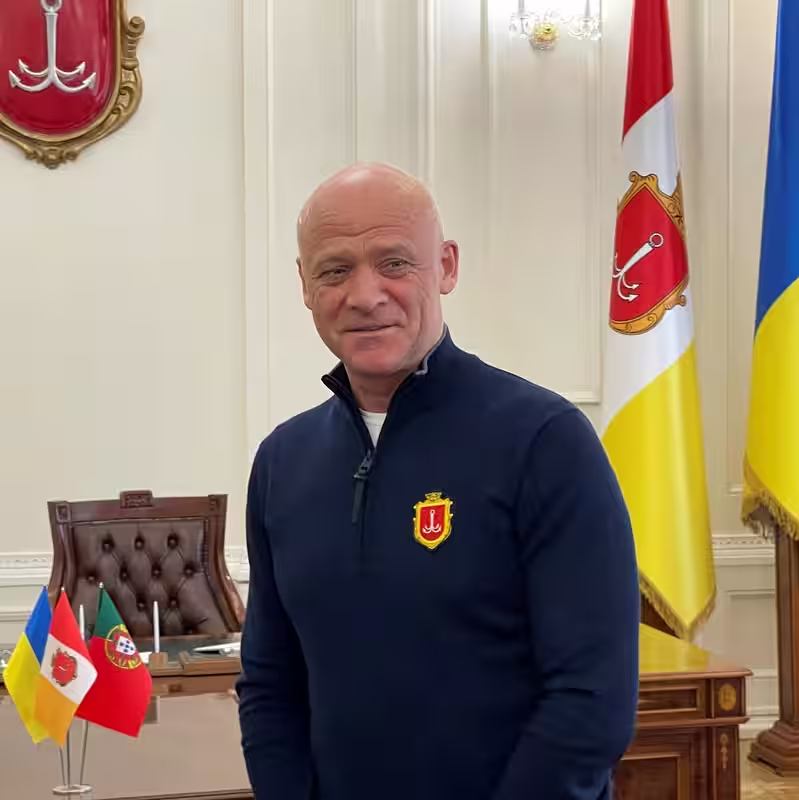Table of Contents
- Citizenship Revoked Over Alleged Russian Ties
- Political Backlash and Accusations of Power Grab
- Odesa Placed Under Military Administration
- Historical Context: Trukhanov’s Controversial Past
- What Happens Next?
- Sources
Zelensky Revokes Odesa Mayor’s Citizenship Over Alleged Russian Passport
In a dramatic escalation of tensions between Ukraine’s central government and regional leaders, President Volodymyr Zelensky has revoked the Ukrainian citizenship of Hennady Trukhanov, the long-serving mayor of Odesa. The move, announced on Tuesday, October 14, 2025, comes after Ukraine’s Security Service (SBU) claimed Trukhanov held a valid Russian passport issued in 2015—a direct violation of Ukrainian law that prohibits dual citizenship with Russia.
Trukhanov, who has led Odesa since 2014, immediately denied the allegations, calling the decision “politically motivated” and vowing to challenge it before Ukraine’s Supreme Court. “I am a Ukrainian citizen, born and raised in this country,” he said in a public statement. “This is not about legality—it’s about silencing dissent.”

Opposition Slams Move as Undemocratic Power Grab
Critics argue that Zelensky’s action is less about national security and more about consolidating control ahead of post-war elections. Oleksii Potapskyi, head of the European Solidarity party in the Odesa City Council, accused the president of exploiting wartime powers to sideline political rivals.
“Our president has been in power for six years, and only now he has suddenly discovered that Mr. Trukhanov allegedly has Russian citizenship,” Potapskyi told local media. “This is more of a political crackdown. It has nothing to do with democracy.”
The timing is notable: just weeks earlier, a public petition calling for Trukhanov’s citizenship to be revoked crossed the 25,000-signature threshold required for presidential review—a threshold it reached unusually fast, raising suspicions of orchestrated mobilization.
Odesa Placed Under Military Administration
In a follow-up announcement Tuesday evening, Zelensky declared the establishment of a military administration for Odesa, citing “unaddressed security issues” and failures in restoring power after recent Russian missile strikes. He said he would appoint a new head for the city shortly.
This move echoes a broader trend: civil society groups have long warned that Kyiv is using martial law provisions to override elected local governments—even in matters unrelated to defense. Similar tensions have flared in Kyiv and Kharkiv, where mayors have accused Zelensky of overreach.
Trukhanov’s Controversial Legacy
Trukhanov’s political past has long drawn scrutiny. A former member of the now-banned pro-Russia Party of Regions, he was investigated in 2016 for alleged embezzlement but never convicted. That same year, the SBU found no evidence of Russian citizenship—making the current passport claim particularly contentious.
During the war, Trukhanov has largely avoided direct criticism of Zelensky but has resisted Kyiv’s push to erase imperial Russian symbols from Odesa—a city historically shaped by the Russian Empire. His opposition to renaming streets and removing statues has fueled accusations of lingering pro-Moscow sympathies.
What Happens Next?
Legally, revoking Trukhanov’s citizenship removes him from office—but he insists he’ll continue his duties until formally dismissed by the City Council. Meanwhile, questions linger: Will he be expelled from Ukraine? And if so, where would he go?
Lawmaker Oleksii Honcharenko, of former President Poroshenko’s party, warned the move sends a chilling message: “Revoking Trukhanov’s citizenship and establishing the Odesa military administration is an open signal to every mayor that everyone is under scrutiny—and they’ll get to each of them when the time comes.”
As Ukraine navigates the delicate balance between wartime unity and democratic accountability, this showdown in Odesa may foreshadow deeper political fractures to come.




